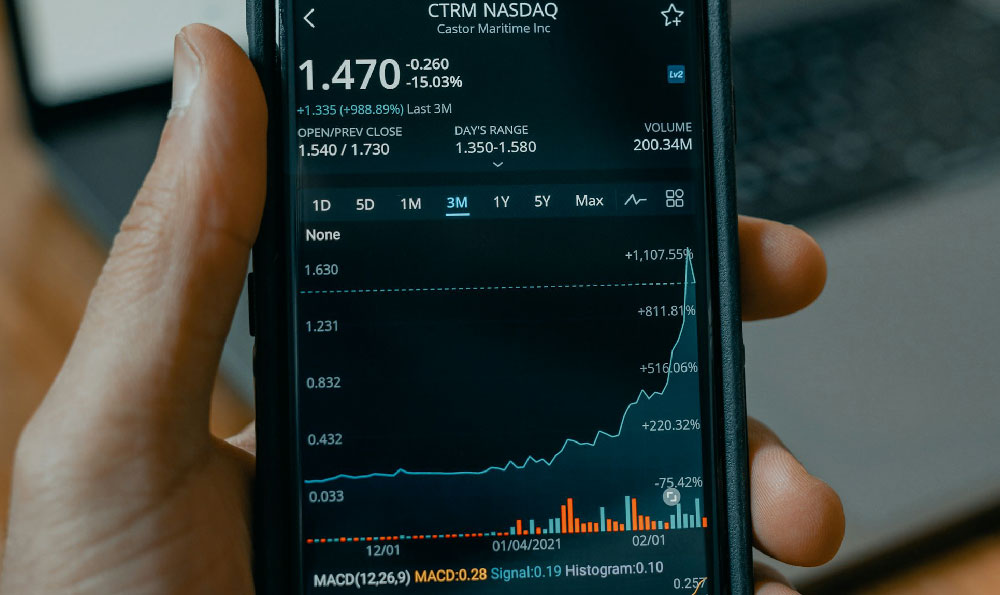Should I Invest My Money, or Should I Pay Down My Mortgage First?

Investing versus paying down your mortgage is a classic financial dilemma, a tug-of-war between potential wealth accumulation and debt reduction. There's no one-size-fits-all answer, as the optimal strategy hinges on a constellation of individual factors, including your risk tolerance, financial goals, mortgage interest rate, investment opportunities, and overall financial situation. Let's delve into this complex issue, providing a framework for making an informed decision.
The Case for Investing: Unleashing the Power of Compounding
The allure of investing lies in the potential for exponential growth. The stock market, historically, has delivered returns significantly exceeding mortgage interest rates over the long term. This difference, even a seemingly small one, can translate into substantial wealth creation over decades thanks to the magic of compounding. Compounding essentially means earning returns not only on your initial investment but also on the accumulated interest or gains.

Consider this scenario: You have $10,000 and a mortgage with a 4% interest rate. If you invest the $10,000 and achieve an average annual return of 7%, after 30 years, your investment could grow to approximately $76,123. Now, consider paying down your mortgage. While you'd save on interest payments, the long-term growth potential is capped at the mortgage interest rate (4% in this example). You're essentially getting a guaranteed "return" of 4% by avoiding that interest expense.
Furthermore, investing offers diversification opportunities. Spreading your investments across various asset classes – stocks, bonds, real estate, and even alternative investments like cryptocurrency – can mitigate risk. A well-diversified portfolio is less susceptible to the volatility of any single investment. Paying down your mortgage, on the other hand, concentrates your wealth into a single asset: your home. While homeownership is generally considered a good investment, it shouldn't be your sole financial anchor.
Another argument for investing is the potential for tax advantages. Certain investment accounts, like 401(k)s and IRAs, offer tax-deferred or tax-free growth, further enhancing returns. Mortgage interest, while often tax-deductible, may not provide as significant a tax benefit, especially with recent changes to tax laws.
The Case for Paying Down Your Mortgage: A Fortress of Financial Security
The primary advantage of paying down your mortgage is the peace of mind it provides. Reducing your debt burden frees up cash flow, allowing you to pursue other financial goals or simply enjoy a more comfortable lifestyle. Knowing that you owe less on your home, or even own it outright, can significantly reduce financial stress and anxiety.
Paying down your mortgage also provides a guaranteed return, albeit often lower than potential investment returns. By reducing the principal, you lower your interest payments, saving you money over the life of the loan. This is a risk-free return, unlike the fluctuating returns of the stock market. In uncertain economic times, this security can be particularly appealing.
Accelerated mortgage payments can also help you build equity in your home faster. This increased equity can provide a safety net in case of financial hardship, allowing you to tap into your home's value through a home equity loan or line of credit if needed. It also positions you better for future financial endeavors, such as purchasing a second property or starting a business.
Moreover, owning your home outright can significantly simplify your financial life. Without monthly mortgage payments, you'll have more disposable income to allocate towards retirement savings, travel, or other personal priorities. This financial freedom can be invaluable in the long run.
Analyzing the Critical Factors: Your Personal Financial Landscape
Before making a decision, carefully evaluate the following factors:
-
Mortgage Interest Rate: A higher interest rate makes paying down your mortgage more attractive. Conversely, a lower rate makes investing more appealing, as the potential investment returns are likely to exceed the cost of borrowing.
-
Investment Opportunities: Evaluate the potential return on investment opportunities available to you. Consider your risk tolerance and choose investments that align with your comfort level and financial goals.
-
Risk Tolerance: If you're risk-averse, paying down your mortgage might be a better option. The guaranteed return and reduced debt burden can provide a sense of security that outweighs the potential for higher investment returns.
-
Financial Goals: What are your primary financial goals? Are you prioritizing retirement savings, early financial independence, or simply debt reduction? Your goals will heavily influence your decision.
-
Tax Situation: Consult with a tax advisor to understand the tax implications of both investing and paying down your mortgage. The tax benefits of each option can vary depending on your individual circumstances.
-
Cash Flow: Assess your current cash flow and determine how much you can realistically allocate towards investing or mortgage payments without jeopardizing your financial stability.
A Balanced Approach: The Best of Both Worlds
Instead of viewing investing and paying down your mortgage as mutually exclusive options, consider a balanced approach. You could allocate a portion of your funds towards investments while simultaneously making extra mortgage payments. This strategy allows you to benefit from the potential growth of investments while also reducing your debt and building equity in your home.
Another approach is to prioritize paying down your mortgage early in the loan term, when a larger portion of your payments goes towards interest. Once you've significantly reduced the principal, you can shift your focus towards investing.
Ultimately, the decision of whether to invest or pay down your mortgage is a personal one that should be based on a thorough assessment of your individual circumstances, financial goals, and risk tolerance. Consult with a qualified financial advisor to develop a personalized strategy that aligns with your needs and helps you achieve your financial objectives. Remember, there's no right or wrong answer, only the option that best suits your unique financial landscape.















